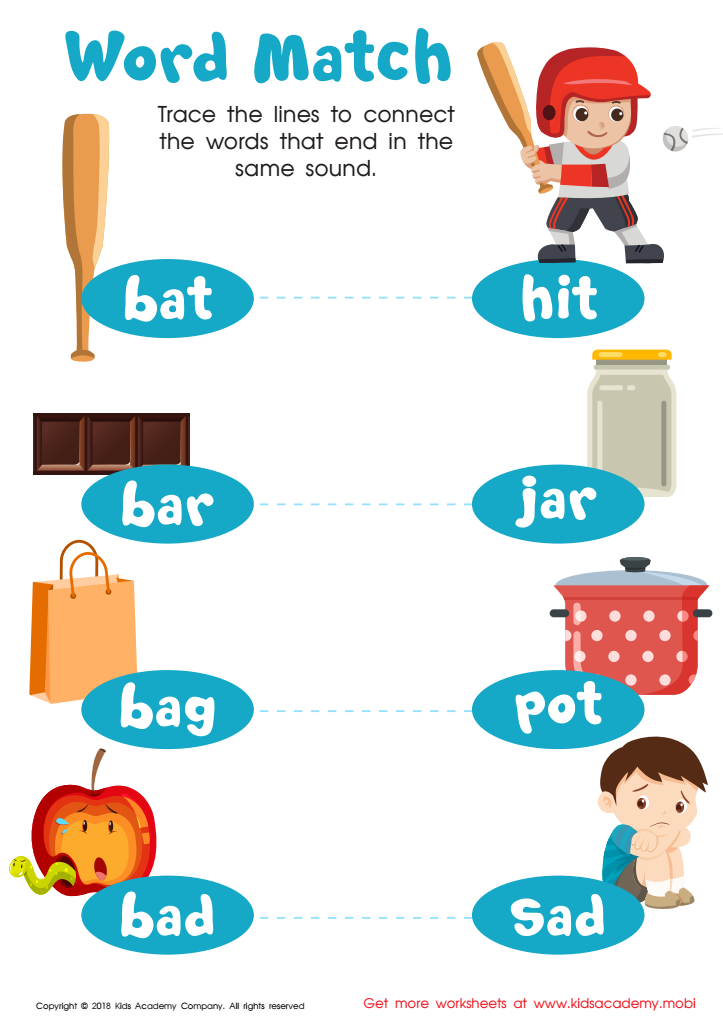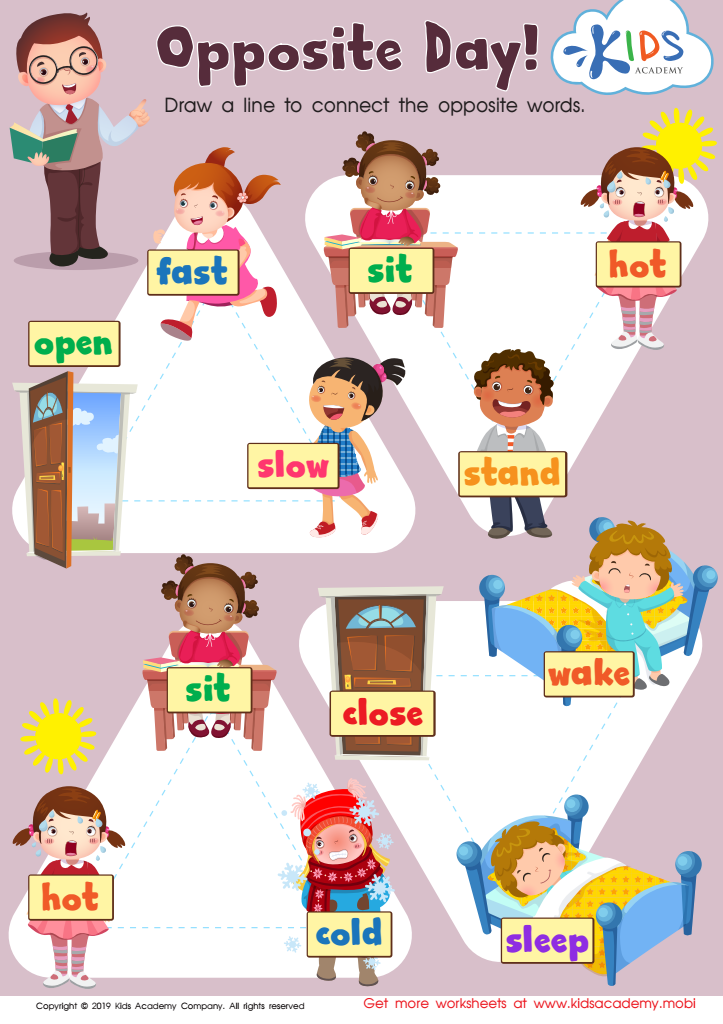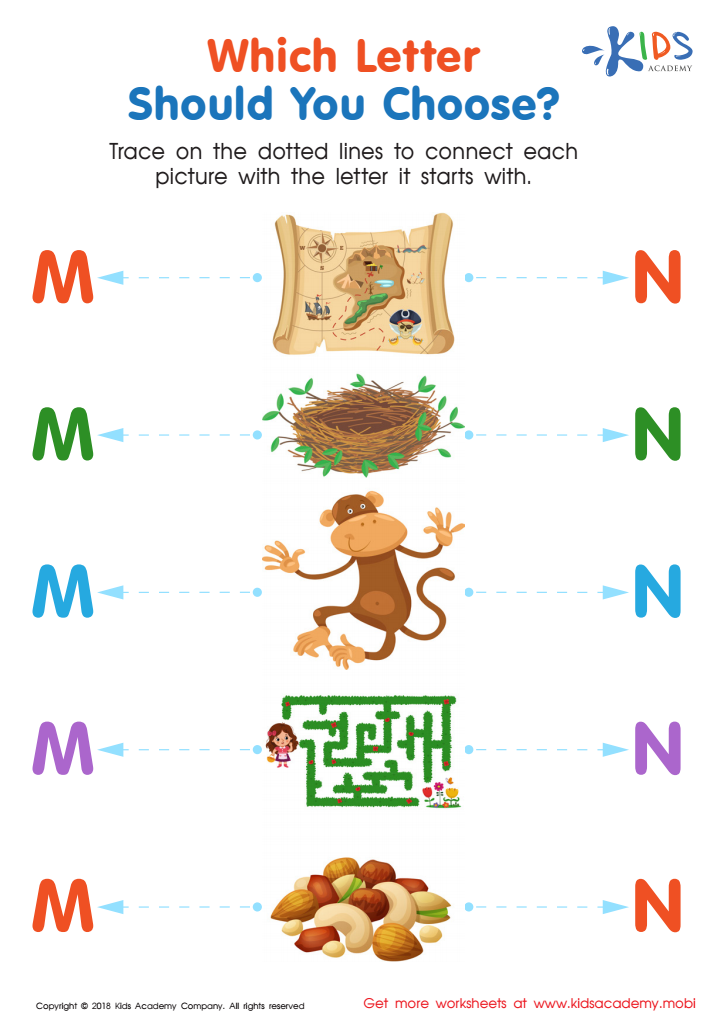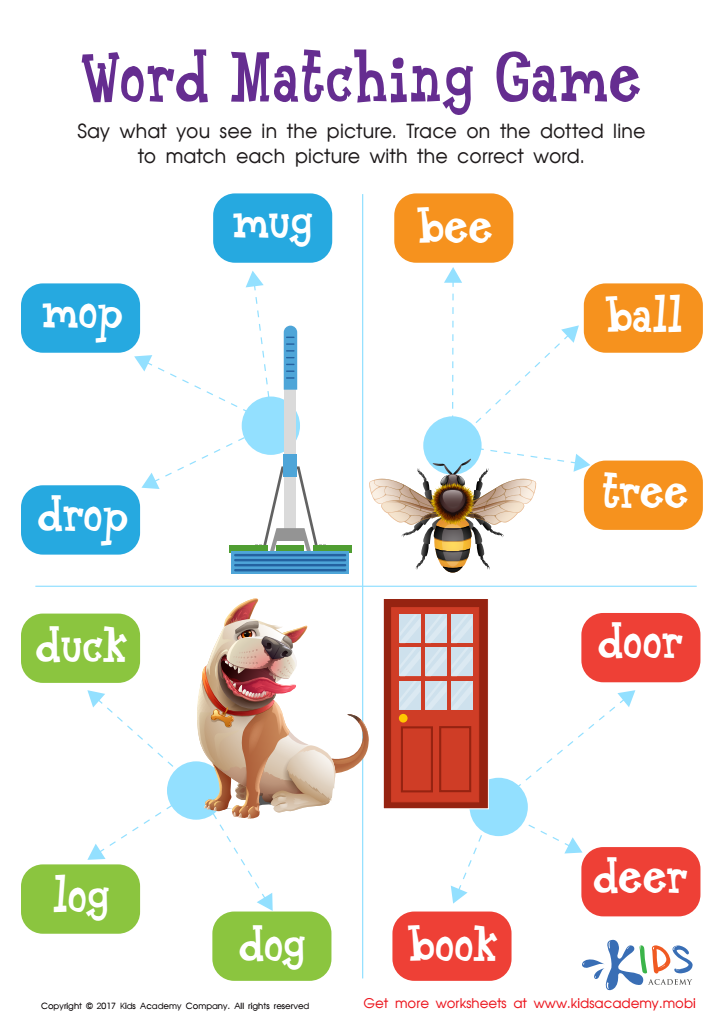Cognitive Development Normal Alphabet Worksheets for 4-Year-Olds
4 filtered results
-
From - To
Discover our engaging Cognitive Development Normal Alphabet Worksheets designed specifically for 4-year-olds! These worksheets foster essential cognitive skills while introducing young learners to the fundamentals of the alphabet. Each activity is crafted to enhance memory, critical thinking, and attention span through fun, interactive exercises. As children trace letters and identify objects, they experience a seamless blend of play and education that cultivates their love for learning. Ideal for home or classroom use, our worksheets serve as a valuable resource to help children develop the building blocks for literacy while exploring their creativity. Start your child's learning journey today!


Word Match Reading Worksheet


Opposite Day Worksheet


Which Letter Should you Choose? Worksheet


Word Matching Game Worksheet
Cognitive development at the age of four is crucial, as children begin to engage more deeply with the world around them. At this stage, developing a solid understanding of the normal alphabet can significantly impact language skills, literacy, and overall cognitive growth. When parents and teachers emphasize the importance of the alphabet, they nurture children's ability to recognize letters, understand sounds, and eventually manipulate words—all foundational skills for reading and writing.
Caring about cognitive development through the alphabet not only boosts literacy but also enhances critical thinking and problem-solving skills. As children learn to identify letters and their sounds, they start recognizing patterns, which encourages logical reasoning. Moreover, a strong grasp of the alphabet helps build self-confidence and fosters a love for reading, which is vital for lifelong learning.
By integrating educational activities related to the alphabet in playtime and daily routines, adults can create a supportive environment that caters to learning. This interest in early literacy honors children’s natural curiosity, setting the groundwork for more complex literacy skills in the future. Ultimately, prioritizing cognitive development around the normal alphabet is investing in a child’s educational success and personal growth.
 Assign to My Students
Assign to My Students



.jpg)











